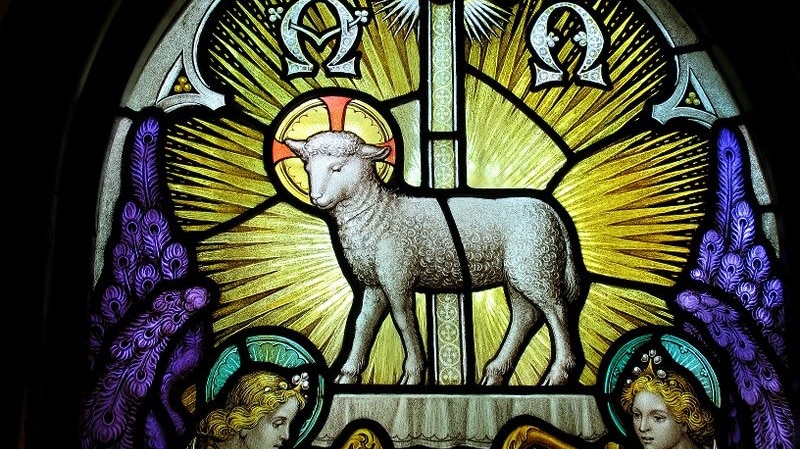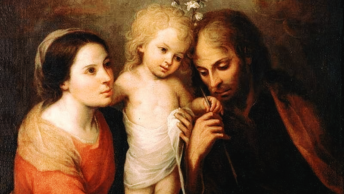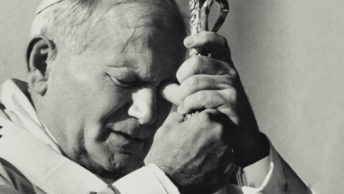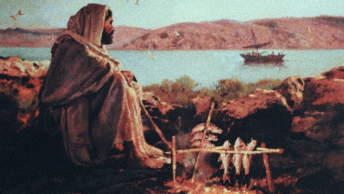As we reflect on this well-known parable (Matthew 22:1-14), I suggest that we do not take its setting too literally. Were we to do so, we would have to conclude that either God has very good Sterno burners to keep the wedding choice foods warm for the longest time or we can expect cold cuts at the wedding banquet of his Son.
For here we have a somber reflection of the early Church on the turn of events unfolding around her, even as she met with hostilities, rejection and persecutions. Once again it is set with Jesus lashing out against the elite of the Jewish Nation (chief priests and the elders of the people). They are accused of refusing God’s free and undeserved offer of entering the Heavenly Banquet prefigured by Isaiah 25:6-10 and of keeping their people out of it as well. Once again, all subtle points touched upon by Jesus in this parable are quite revealing and challenging.
For starters, nobody is entitled or has any merits to deserve admittance to the heavenly banquet by right. This is quite irritating to our proud and self-centered human nature wounded by original sin. In some cases it can be irritating and humiliating to the point of triggering irrational reactions. Apparently, the most irrational reaction comes from those who, in every age, consider themselves the elite, the cream of the crop.
Back then, those belonging to the upper echelon felt that they did not need an invitation. Or that they deserved it by the simple fact of belonging to God’s chosen people. Yet this is not how God sees things relative to admittance to the wedding feast of his Son and, therefore, through it, relative to adoption into his divine Family. We cannot forget that, back then, to share a meal with royalties was not only an incredible honor but, more importantly, it de facto sealed all partakers of that meal into a bond stronger than a blood relation. Hence, in Jesus’ eyes it is always an invitation to belong to his Father’s very Family. Consequently, the excuses of the elite to turn down the formal invitation to the royal banquet were insulting to the absurd extent that in their arrogance they preferred work on a farm and business over the venue to become royalties themselves!
Actually, some felt so hurt by the King’s free and undeserved offer that they reacted in very irrational fashions: they mistreated and/or killed his envoys. Naturally the King could not take lightly the terrible affront.
The early Church must have indentified in her first martyrs the envoys killed by the Jewish elite, and the destruction of the Temple and of the city of Jerusalem by the Romans in 70 AD as God’s retribution. She also must have seen herself as being sent to extend God’s invitation to enter his Kingdom to whomever she found, bad and good alike.
But, enough for history; enough for the way the Church saw her role in the past. We are living out this parable today, in this banquet hall, around this Table of the Lord. What type of considerations does the parable elicit in us? What type of warnings does it hold for us?
First of all, we can ill afford to underestimate the greatness of God’s invitation. It is easy or difficult to appreciate it in proportion to the real role God plays in our life. Furthermore, we should be constantly aware that proper appreciation of the invitation is not a given since, in the real world, a number of times, we might feel the pressure to consider our “farm,” our “business,” our moneymaking activities as worthy of occupying most of our time and energies.
Secondly, let us remember that a tragic refusal to attend the banquet would not be uttered in the spur of the moment or as we are in our deathbed. But it would be, rather, the result of small, imperceptible little decisions we make routinely every day.
If, for example, we do not feel the need to live in God’s presence through prayer and to fill our hearts with his light and comfort, there is no way we could appreciate his offer as adequately as we should. Unless the Lord and his Kingdom are always our top priority in life, we would not think twice about preferring, say, a round of golf to being here on Sunday for the rehearsal of the royal wedding Banquet. The same can be said of a fun trip, or slouching in front of the TV set for the entire weekend, or whatever we might choose to do over his invitation to spend an hour in his home. Then, our last refusal would be the likely outcome of repeated little refusals to celebrate with him, around his Table, the banquet of the Body and Blood of his Son, the divine Bridegroom.
Yet, perhaps the most difficult aspect of the parable to swallow must be the complete gratuitousness of God’s offer and the impossibility of deserving it. It would be bearable if we could think of a way to reciprocate. But we can only offer back to the Lord some of what he has given us during the preceding weeks. Thus our debt of gratitude grows bigger every day.
The fact remains that, after all our sincere efforts to be good, to obey God’s laws, to help others, to lead a prayerful life, to conduct ourselves as best we can, we are tersely reminded that we are still more bad than good (cf. Matthew 7:11). Nor can we look around for someone less deserving than ourselves. If we know ourselves well enough, judging others is not a luxury we can afford even though we face wall to wall poverty, wall to wall misery and pettiness, along with a universal need for forgiveness, for another chance.
So, as in times past, the King must provide for us all the wedding garment to cover our rags, to hide our unworthiness. It is the wedding garment of the King’s infinite mercy. It is a garment that can only by worn by those who are eager to join in unbridled, unrelenting, full-throated joy for that mercy which is guaranteed by the resurrection.
Thus, wisely, we shall live the rest of our sojourn on this earth treasuring the King’s invitation over and above any other business in which we might be engaged and ready ourselves to wear joyfully the white garment that was washed white in the blood of the Lamb (cf. Revelation 7:14).
We are warned that the King won’t be inclined to tolerate any disdain for the shedding of Lamb’s blood because it is the blood of his royal Son.








